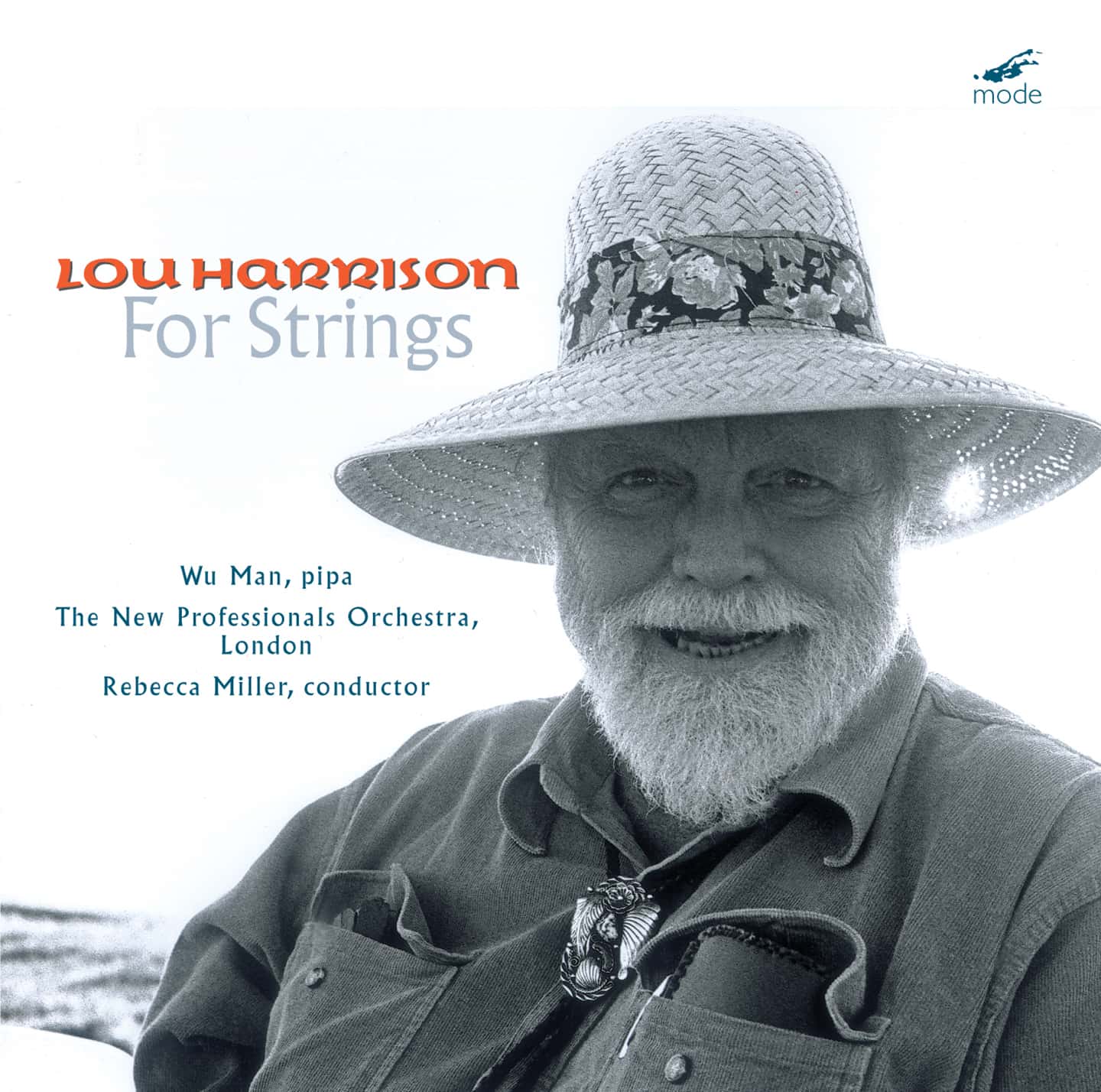Suite No. 2 for Strings (1948) (11:07)
1. Adagio, molto cantabile (3:54)
2. Allegro moderato (2:01)
3. Allegro moderato, tranquillo (5:12)
First recording by string orchestra
Suite for Symphonic Strings (1960) (37:18)
4. Estampie (4:02)
5. Chorale (4:07)
6. Double Fugue (5:12)
7. Ductia (2:38)
8. Lament (5:56)
9. Canonic Variations (5:22)
10. Little Fugue (3:12)
11. Round in Honor of Hermes (3:04)
12. Nocturne (3:45)
First complete recording on CD
Concerto for Pipa with String Orchestra (1997) (26:41)
13. Allegro (4:12)
Bits and Pieces:
14. Troika (2:53)
15. Three Sharing (2:50)
16. Wind and Plum (2:58)
17. Neapolitan (1:10)
18. Threnody for Richard Locke (5:20)
19. Estampie (7:18)
First recording
Wu Man, pipa
The New Professionals Orchestra, London
Rebecca Miller, conductor
The present recording traces the development of Harrison’s creativity over a half century – from 1948 to his last large-scale composition (1997).
The Suite No. 2 for Strings was written while Harrison lived in New York. Having spent his formative years in San Francisco, Harrison had a great deal of trouble adjusting to East Coast big-city life. A nervous breakdown required him to be hospitalized for about nine months. The Suite No. 2 dates from the year after this traumatic event, and signs of Harrison’s mental stress are apparent, particularly in the torturous and difficult second movement. But also in evidence is the tranquility he sought from religion during this period and the more transparent textures he would favor later.
This CD presents the first recording of the work by a string orchestra – Harrison’s original intent.
The lengthy Suite for Symphonic Strings was a commission from BMI. By this time Harrison had returned to the San Francisco region. The bass and cello sections provide percussion accompaniment, the players hitting the bodies of their instruments with their fingers and using guitar picks on the strings to achieve a percussive pizzicato. This is the first recording of the complete nine-movement work.
Harrison had been interested in Asian music since his early years. The late Concerto for Pipa is a model of Harrison’s trans-ethnicism, evoking the many influences that had attracted him over a half century. The work ends with an extended, medieval-inspired estampie, a virtuoso tour-de-force for soloist and orchestra.
The concerto was written for conductor Dennis Russell Davies and pipa virtuoso Wu Man.
Wu Man was cited by the Los Angeles Times as “the artist most responsible for bringing the pipa to the Western World.” She has championed new pipa literature from composers including Terry Riley, Philip Glass, Lou Harrison, and Tan Dun.
“Definitely an ensemble to look out for”, The Strad said of The New Professionals (London). Founded in 1999, The New Professionals, made up of highly distinguished young artists, rose quickly to prominence in the London music scene. Renowned for its innovative programming and dynamic musicianship, the ensemble frequently juxtaposes rarely performed 20th-century works with fresh interpretations of mainstream compositions.
Rebecca Miller has developed a reputation as one of Britain’s most imaginative young conductors. Reviewers cited her “new insights into old works” and imaginative programming, as well as her “lucid and stylish baton.” Born in California, she moved to London in 1999 after completing her studies at Oberlin and Northwestern. She was awarded the prestigious Paul Woodhouse Conducting Fellowship (2001), allowing her to study with John Carewe.

